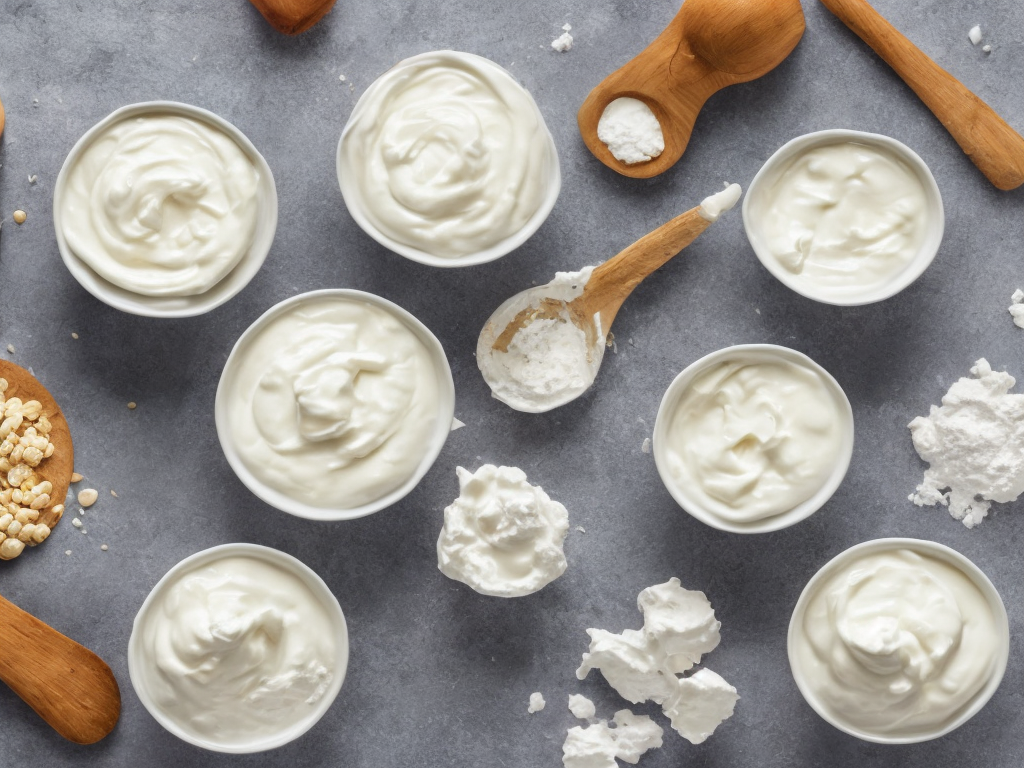
Curd and yogurt are two of the most commonly consumed dairy products across the globe. While both curd and yogurt are produced from milk by fermentation, there are some significant differences between the two. The differences lie in the method of preparation, the microbial cultures used, and the nutritional benefits.
What is Curd?
Curd is a dairy product that is produced by coagulating milk with an acidic substance such as vinegar, lemon juice or a combination of both. The souring process takes longer to produce curd than yogurt, and its taste and texture can be different depending on the acid used. The coagulated milk is then strained, and the liquid whey is drained off leaving a thick, custard-like substance that is curd.
Compared to yogurt, curd has a distinct tangy flavor and a slightly grainy texture. Due to the acid used to coagulate the milk, curd may also have a slightly different nutritional profile.
What is Yogurt?
Yogurt is also a fermented dairy product that is produced by lactic acid bacteria such as Streptococcus thermophilus and Lactobacillus bulgaricus. The bacteria ferment lactose, the natural sugar found in milk, turning it into lactic acid. This process thickens the milk and creates the characteristic tangy flavor.
Yogurt is made by adding a starter culture containing the lactic acid bacteria to warm milk, which is then incubated until the milk is converted into yogurt. The longer the incubation period, the thicker and tangier the resulting yogurt will be.
Compared to curd, yogurt has a creamy texture and a tangy taste that is often paired with sweeteners or fruits to make it more appealing to the palate.
Differences between Curd and Yogurt
1. Microbial Cultures
The main difference between curd and yogurt is the microbial cultures used to produce them. While curd is produced by coagulating milk with acid, yogurt is produced by fermenting milk with specific strains of bacteria.
2. Nutritional Content
Curd and yogurt have different nutritional profiles. While both are rich in protein, calcium, and essential vitamins, the nutritional content varies depending on the type of milk and cultures used. Yogurt is especially high in probiotics, which promote gut health and may boost the immune system.
3. Taste and Texture
Curd and yogurt differ in taste and texture due to their distinct methods of production. Curd has a tangier flavor and a grainy texture due to the coagulation process, whereas yogurt has a creamy texture and a tangy taste due to the fermentation process.
4. Health Benefits
Both curd and yogurt offer health benefits, but they differ in terms of the specific benefits they offer. Curd is effective in reducing inflammation, aiding digestion, and boosting the immune system. Yogurt, on the other hand, provides probiotics that help improve gut health, prevent infections, and boost overall immune function.
Which is Better - Curd or Yogurt?
Both curd and yogurt offer numerous health benefits, but the choice between the two ultimately comes down to personal preference and dietary needs.
For those who are lactose intolerant, yogurt may be a better option as some of the lactose will have been converted into lactic acid during the fermentation process. For those aiming to increase their protein intake, curd may be the better option as it has a slightly higher protein content.
It is also important to note that many store-bought varieties of yogurt contain added sugars and artificial flavors, which can undermine its health benefits. Opting for plain, unsweetened yogurt is the best way to reap its health benefits.
In conclusion, curd and yogurt are two dairy products that differ in taste, texture, and nutritional benefits. They are both healthy options that should be included in one's diet in moderation. When choosing between the two, it is best to opt for natural, unsweetened varieties that are free from additives and preservatives.
 Self-Instruct
Self-Instruct